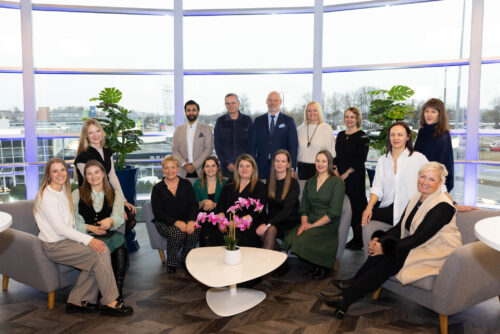
News
Experts: It is Essential to Develop Children’s Creativity, Critical Thinking, and Collaboration in Early Childhood Education
Children currently attending preschool were born in the age of technology, which also needs to be considered in the educational process. At the moment these children grow up and begin to shape their careers, 65% of professions will be ones we currently aren’t even familiar with, so it’s important to develop several crucial skills in children: character, creativity, communication, collaboration, civic awareness, and critical thinking, experts pointed out at the “Digital Literacy in Preschool” conference.
Experts not only discussed the safe and meaningful use of technology in preschool education but also emphasized the importance of this stage of education as a whole, noting that quality care is essential for children to develop fully and maintain motivation to learn in further stages of education. Research indicates that 90% of brain development occurs in the child’s first five years of life, and what they experience during these early years significantly shapes their thinking and understanding of things.
The conference was opened by the Minister of Education and Science, Anda Čakša, who emphasized: “Preschool students are born into a world where the digital environment is ubiquitous, and in the future, they will work in jobs that will require the use of various digital tools, including those that we are not yet familiar with. Therefore, we are facing a significant challenge right now – how to help children develop digital skills so that they support the acquisition of new, meaningful knowledge, rather than just being a time delay.”
Participants were also addressed by educator and father of five, Hans Jacob Sundby from Norway, who leads the “Dibber” (known in Latvia as “CreaKids”) preschool network in 10 countries worldwide. “When thinking about children’s education in the preschool stage, it is important to remember that it is equally important not only to lay the foundations for their future attitude towards learning but also not to take away their childhood and to be able to listen to every child. One of the most important elements in preschool is the emotional climate, which includes both physical and mental security, without which children’s development is unimaginable,” the expert pointed out.
The organizer of the conference, Daina Kājiņa, director of the preschool “CreaKids,” emphasized: “Our goal was to highlight that for children born in the digital age, technology can help provide additional motivation and foster interest in learning, as well as develop creativity, critical thinking, communication skills, and the ability to work in teams. All these skills will be necessary in the future, regardless of the chosen field of activity or profession. Technology can be a great aid provided that educators are knowledgeable and able to demonstrate how to use them meaningfully.”
During the conference, the possibility of providing remote learning in preschool was also analysed, for example, during prolonged absences or illnesses, as well as extensively discussed the creation of a safe online environment for children. Otto Ķenga, the head of LMT services, pointed out that “only 52% of children feel safe in online environments, yet 72% of children encounter threats online, which most commonly include age-inappropriate content and images, cyberbullying – obtaining sensitive information, as well as unwanted advertisements.”
The purpose of the event was to emphasize the meaningful use of technology for preschool-age children, which means not just spending time with devices alone, but engaging in group work, collective projects, and similar activities. During the conference, it was explained how, by thoughtfully using technology, it can also help promote physical activity, practical engagement, and creativity. The conference was funded within the framework of the Erasmus+ project “Digital Literacy in Preschool.”

 Log In
Log In